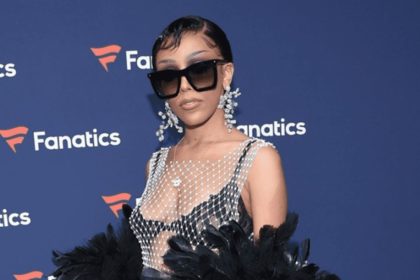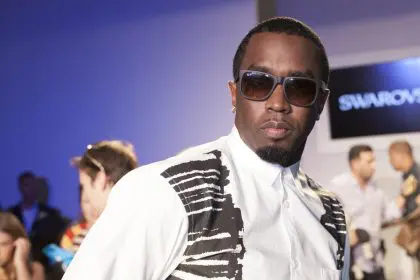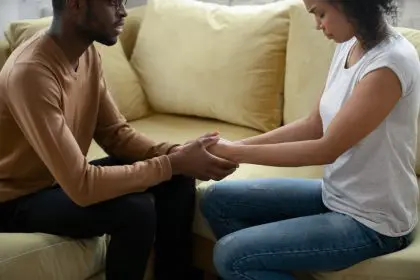Your best friend knows your quirks, shares your inside jokes, and has been your rock through life’s ups and downs. It’s no wonder that the idea of dating them might seem appealing. After all, who better to build a romantic relationship with than someone who already knows and accepts you completely? However, this seemingly perfect scenario comes with its own set of risks that could jeopardize not only your potential romantic relationship but also the friendship you’ve cherished for years.
The friendship fallout: When love goes wrong
One of the most significant risks in dating your best friend is the potential loss of the friendship itself. Friendships and romantic relationships operate on different emotional frequencies, with distinct expectations and dynamics. While friendships offer stability and comfort, romantic relationships bring passion and intensity to the forefront.
If the romance doesn’t work out, reverting to the friendship you once had can be challenging, if not impossible. Lingering feelings of resentment, awkwardness, or sadness can taint the relationship, potentially leading to the dissolution of a bond that took years to build.
The pressure cooker of romance
In a platonic friendship, you’re free to be yourself without the added pressure of meeting romantic expectations. Once romance enters the equation, the relationship’s dynamic often shifts dramatically. What was once easy and comfortable can become laden with expectations related to physical intimacy, commitment, and relationship milestones.
The pressure to fulfill certain romantic ideals that weren’t present in the friendship can lead to anxiety and frustration. This shift can challenge the balance that made your friendship so effortless, potentially resulting in communication breakdowns and arguments that didn’t exist before.
Vulnerability: A double-edged sword
Friendships provide a sense of security that may not exist in the early stages of a romantic relationship. When dating your best friend, you might fear that exposing vulnerabilities could jeopardize both the romantic relationship and the friendship.
Romantic relationships can bring up insecurities that weren’t present in a platonic connection. Jealousy, fear of abandonment, and concerns about being a good enough partner can creep in, affecting your sense of self-worth and putting additional strain on the relationship.
Future friction: When life goals diverge
While friends can accept and support each other despite differing life plans, romantic partners often require more alignment in key areas. Dating your best friend can expose differences in long-term goals that weren’t relevant to your friendship but become critical in a romantic context.
Disagreements about marriage, career aspirations, or family planning can lead to conflicts and disappointment. The pressure to compromise on fundamental aspects of your life may breed resentment, potentially ending both the romance and the friendship.
The green-eyed monster emerges
Friendships typically come with a sense of freedom and trust that allows both individuals to maintain other relationships without feeling threatened. However, dating your best friend can introduce jealousy and possessiveness that didn’t exist before.
If one person begins to feel threatened by the other’s interactions with friends, co-workers, or exes, it can create tension and lead to fights. Moreover, if the relationship doesn’t last, seeing your former best friend and romantic partner date someone else can be a painful experience that complicates any attempt to salvage the friendship.
Ghosts of conflicts past
When you date your best friend, unresolved issues or conflicts from your shared history may resurface. Friendships often allow for some level of avoidance when it comes to deep emotional discussions or conflicts. However, romantic relationships demand more in terms of communication and emotional resolution.
If you’ve swept certain issues under the rug during your friendship, those unresolved problems may come to the surface once you begin dating. This could lead to arguments, frustration, and ultimately, the dissolution of both the romantic and platonic relationship.
The support system shake-up
Your best friend is likely one of your closest sources of emotional support, the person you turn to during hard times for advice, comfort, or just a listening ear. When you start dating your best friend, that support system can change dramatically.
If you’re having relationship problems, you might not feel comfortable confiding in your partner in the same way you once did as friends. Moreover, if the relationship ends badly, you lose both a romantic partner and a best friend in one fell swoop, potentially leaving you feeling isolated and lacking the support network you’ve always relied on.
Proceeding with caution: The path forward
While dating your best friend may seem like an exciting and natural progression, it’s crucial to proceed with caution. The potential for a fulfilling, long-lasting romance exists, but so do the risks of emotional fallout, friendship loss, and new relational pressures.
Before diving into a romantic relationship with your best friend, take time to evaluate whether the benefits truly outweigh the risks. If you’re both willing to communicate openly, address conflicts head-on, and prioritize the friendship regardless of the outcome, dating your best friend could be a rewarding experience.
However, it’s equally important to be realistic about the potential consequences. For some, the deep bond of friendship is better left untouched by the complexities of romance. Remember, the decision to cross this line is not one to be taken lightly, as it has the power to alter the course of your relationship—and your life—forever.
This story was created using AI technology.












